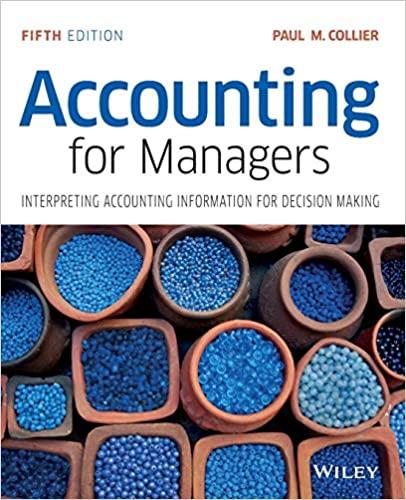Question
3. Assume that you are the head of the internal audit function at Natures. You have been asked by the chair of the audit committee
3. Assume that you are the head of the internal audit function at Natures. You have been asked by the chair of the audit committee to recommend ways that internal auditors can help the organization achieve FCPA compliance. What recommendations would you make?
As the global market for natural remedies grew during the 1990s, sales of encapsulated herbs dominated Natures. In 1994, Natures created a subsidiary in Brazil (Natures Brazil), which became its biggest foreign market. During 19992000, the Brazilian government reclassified certain herbal products as medicines. This reclassification required Natures Brazil to register many of its products as medicines. Natures Brazil was unable to register a large number of its products, so sales declined dramatically. This put pressure on Natures to get the products into Brazil. As a result, Natures Brazil made undocumented cash payments to customs brokers (some of which were ultimately received by customs officials) that allowed unregistered products to be imported and sold in Brazil. Essentially, Natures Brazil employees funneled bribes to officials through customs brokers, so the officials would allow the products to be sold in Brazil. Because bribery violates the FCPA, the company had to hide these payments through a series of journal entries designed to make the bribes appear to be legitimate expenditures Exhibit 2 shows the pattern of sales of Natures Brazil before and after the requirement to register many of its products as medicines and includes commentary from the companys annual report. The exhibit highlights the impact of the new registration requirements on Natures Brazils sales. According to the SECs case against Natures, Natures Brazil made an attempt to bypass the new import restrictions by making cash payments to aid the import of unregistered products into Brazil. Payments to customs brokers totaling over $1 million were made between 2000 and 2001, and some of this money ultimately was paid to customs officials as bribes. To hide the nature of these payments, Natures Brazil classified them as importation advances, a legitimate import expense. Natures Brazil did not have supporting documentation (e.g., detailed invoices from legitimate vendors) for as many as 80 cash payments (since they were bribes), so Natures Brazil purchased fictitious documentation for these payments in order to make it appear that the bribes were legitimate expenses. None of this activity was disclosed in its 10-K filed with the SEC. At this point, two of the three provisions of the FCPA were violated. Natures Brazil was (1) bribing public officials, and (2) failing to keep books and records that accurately reflected its transactions. One could argue that the third FCPA provision also was violated because it does not appear that Natures system of internal controls prevented or detected the problem such that it was brought to the attention of corporate management. Once Natures Brazil engaged in the cover up of its bribery, it exposed itself to fraud charges (e.g., willful financial misrepresentation). Around this time, two controllers from Natures (headquarters) visited Natures Brazil and discussed the declining sales situation with Natures Brazils operations manager. The operations manager indicated that in order to find a customs broker willing to facilitate the importation of unregistered products, Natures Brazil had to pay fees representing 25 percent of the value of its products (SEC 2009). The operations manager told the controllers from Natures that months of inventory were sitting in port because customs brokers were not willing to risk facilitating unregistered products (e.g., it was difficult to find anyone willing to bribe the necessary officials to let the products into Brazil). Also, some products that Natures Brazil did manage to get into the country were sold illegally. The operations manager explained that he had reported the situation to the Natures Brazil general manager, but that the general manager stated that Natures (headquarters) knew about the problems in Brazil. At the very least, the two controllers from headquarters now knew about the problem. These controllers had responsibility for Natures books and records and for preparing financial reports that included the results of Natures Brazil.
Step by Step Solution
There are 3 Steps involved in it
Step: 1

Get Instant Access to Expert-Tailored Solutions
See step-by-step solutions with expert insights and AI powered tools for academic success
Step: 2

Step: 3

Ace Your Homework with AI
Get the answers you need in no time with our AI-driven, step-by-step assistance
Get Started


